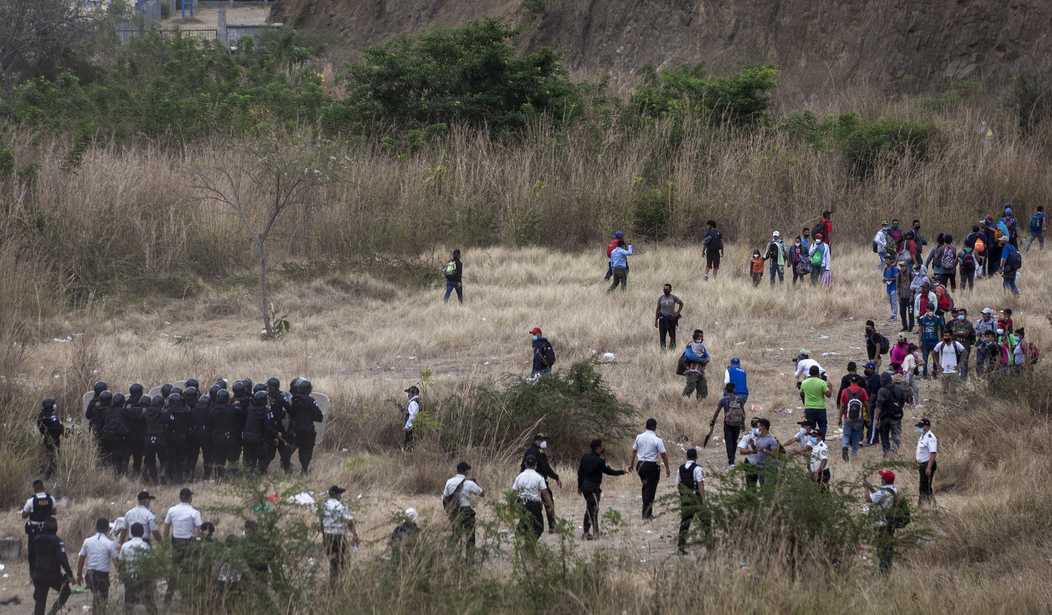A Trump-appointed federal judge ruled on Friday that a program allowing up to 30,000 asylum-seekers from Haiti, Nicaragua, Venezuela, and Cuba to enter the U.S. via airports each month was legal, dismissing lawsuits from Texas and 19 other states.
U.S. District Judge Drew B. Tipton ruled that, since the states couldn't demonstrate direct financial harm from the program, they lacked standing to bring the lawsuits in the first place.
“The Court finds that Plaintiffs have not proven that Texas has suffered an injury and therefore do not have standing to maintain this suit,” Tipton, a Trump appointee in the southern district of Texas, wrote.
Republicans had raised concerns about the program, claiming it was "secret" and the aliens were illegal and unvetted. In fact, each alien was sponsored and paid their own airfare. The program created a "lawful pathway" for entry into the United States.
Biden announced the program last January so it wasn't very "secret."
Tipton commended the program as a "success."
“As far as [the Department of Homeland Security] is concerned, the Program has been a tremendous success,” the order reads.
It's estimated that about 300,000 citizens of the four named countries entered the U.S. in 2023.
In their complaint, the states argued that the DHS created a new visa program — without legislation from Congress — under the “false pretense of preventing aliens from unlawfully crossing the border between ports of entry.”
Texas Attorney General Ken Paxton took it a step further, claiming in a statement that “every state in America” had been “crushed” by the impacts of illegal immigration. In one example, Texas argued in its lawsuit that the program harmed the state because immigrants approved under the program qualify for state services such as health care and public education. It’s one of over two dozen lawsuits that Texas has filed since January 2021 seeking to reverse the Biden administration’s immigration policy.
"The policy requires migrants to have a U.S. sponsor, undergo background checks and arrive in the United States legally at airports, where officials will admit them," notes the Washington Post. A case can be made that "background checks" are hardly adequate vetting for aliens arriving from countries as violent and dangerous as Haiti, Nicaragua, Venezuela, and Cuba.
The administration tacitly admits the difficulty in sending anyone back from these "parole flights":
Biden administration officials said they created the program because large numbers of migrants from those countries were crossing illegally. They have been difficult to deport because of tense U.S. relations with the authoritarian regimes of Cuba, Nicaragua and Venezuela, and violence in Haiti. The program began with Venezuela in late 2022 and expanded to the other countries.
The administration’s overall border strategy has been to create more legal pathways into the United States, such as parole, while threatening tougher penalties, such as deportation, to those who cross the border illegally.
The United States has always been a haven for asylum seekers. But the rules governing entry based on asylum claims have become far too loose and are now allowing too many migrants with potentially bogus asylum claims entry into the U.S., only to see them disappear once they're released into the interior.
Those rules would have been radically changed in the bipartisan deal rejected by Trump and the Republicans.










Join the conversation as a VIP Member